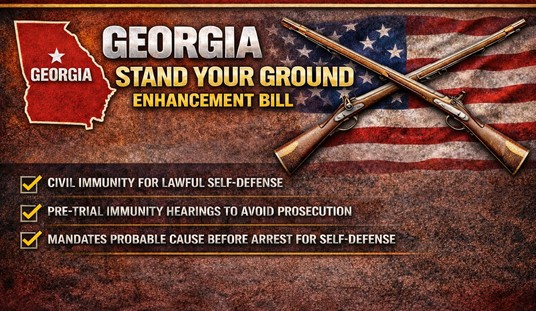Tennessee Gov. Bill Lee is reiterating his calls for a special session to deal with “gun reform” and public safety, but in a sign that his push for a “temporary mental health restraining order” may be faltering Lee now says that lawmakers likely won’t be called back to the state capitol until after Independence Day.
Speaking to reporters a couple of days ago, Lee once again said that it’s unfair to call his proposal a “red flag” law, noting that his plan for a TMHRO offers more due process protects than what is generally found in Extreme Risk Protection Orders. But despite his ongoing efforts to convince the GOP legislative majority to back his plan, there’s still a lot of resistance among lawmakers.
Lt. Gov. Randy McNally, R-Oak Ridge, immediately signaled his support for Lee’s legislation, saying it struck an “extremely delicate balance” of protecting Second Amendment rights and providing “real due process.”Memphis Republican Reps. John Gillespie and Mark White have also since shared their support for Lee’s proposal.But some in GOP leadership — who will play a key role in any bill’s passage — have further to go.Asked if he supported the governor’s proposal, House Majority Leader William Lamberth, R-Portland, said he did not.“Not as it’s currently written,” Lamberth said. “There’s a lot of good stuff in there, but as written, I think it still needs work. But we now have time to do that work.”… House Republican Caucus Chairman Jeremy Faison, R-Cosby, has indicated that law enforcement’s release of the Covenant shooter’s writings should inform lawmakers’ response to the matter. Faison joined a growing call among Republican officials this week for police to release the documents.“We cannot possibly address this horrific situation until we know what was in her manifesto,” Faison wrote in a tweet, calling on the Metro Nashville Police Department and FBI to immediately release the document so that the legislature can “take the appropriate steps.”Democrats — who called for votes on Lee’s proposal before adjournment, and also championed separate gun control legislation — say they’re ready to act with urgency.“Let’s sit down — tonight, tomorrow, this weekend — and let’s hash this out and address the multiple ways we can approach this real problem,” House Democratic Caucus Chair John Ray Clemmons said. “The people of Tennessee have made their voice loud and clear: They want action. Let’s do it. Let’s do the people’s work.”
While I’m not impressed with Lee’s proposal, I have to say that I also find the demand from some Tennessee Republicans to release the Covenant School killer’s manifesto more than a little weird as well. Why should the motivations or desires of an unhinged and cowardly killer help set the tone or scope of the legislature’s response (if any) to these types of crimes of violence? Even if the manifesto reveals the killer was trying to murder others based on their own twisted political or moral values, does that change the debate over whether the governor’s proposal is aimed in the right direction? Not in my mind.
The problem with the temporary mental health restraining order proposed by Lee is that while it offers far more due process protections for gun owners than most “red flag” laws, it’s still premised on the fundamentally flawed idea that someone who’s a danger to themselves or others becomes non-dangerous simply by removing any legally-owned firearms they might have. As the Tennessean recently outlined:
Lee’s proposal would:
- Permit law enforcement to file for a risk protection order
- Require a court hearing to occur three to five days after the petition is received
- Require the gun owner to be present (no ex parte hearings, where the gun owner is not present, are permitted)
- Require a mental health evaluation prior to the hearing, which must find a homicide or suicide risk for the hearing to move forward
- Require a judge to determine that no alternative treatment path exists
- Require a standard of clear and convincing evidence — a legal standard requiring evidence to be substantially more likely to be true than not true
- If all the above are met, require a person to surrender physical possession of their firearms for up to 180 days within 48 hours, and block firearms and ammunition purchase
- Respondent may choose which third party to surrender their guns to — surrender to law enforcement is not required. Third party is not required to be named, but is subject to felony charges if they return the guns before the order expires
Requiring the subject of the protection order petition to be present for all court hearings is a major improvement over what most “red flag” laws look like, including in my home state of Virginia. A mandated mental health evaluation is also a good step, though I can’t help but notice that there’s no requirement for treatment if a judge and mental health professional find that the person is indeed a threat to themselves or others.
Second Amendment advocates have plenty of issues with Lee’s proposal, but for some anti-gun activists the “red flag” law by another name doesn’t go far enough for their liking.
Everytown for Gun Safety, a gun control advocacy group, said that the three-to-five-day period between when law enforcement would file a petition with a court to seize firearms and when a court hearing would generally occur under the proposal “could be the difference between life and death.”
In other words, take the guns first and worry about due process later. But while groups like Everytown will lobby to make the legislation as onerous as possible, Democratic lawmakers seem willing to accept Lee’s proposals knowing they can always go back and add new provisions weakening those protections in the future.
Senate Minority Leader Raumesh Akbari, D-Memphis, said she was prepared to vote for Lee’s bill, saying “it had some teeth in it.”“I was prepared to vote for it,” Akbari said. “When you had a weapon that was taken away from you to a third party and they gave it back to you, that person would be punished — that was very important to me. It allowed police departments to create a process to take those weapons away — that was important to me.”“The process is about incremental change, and I thought this was a big enough leap that we could get on board,” Akbari added. “But we can’t speak about what would have been because our colleagues didn’t give us the opportunity to do that.”









